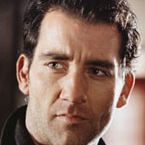warspite1
Posts: 41353
Joined: 2/2/2008
From: England
Status: offline

|
quote:
ORIGINAL: Zap
And the Italians what happened to them in the discussion? So the consensus says Germany could not supply them with upgraded tanks. But they could have proved their troops with training on military tactics, organization, maybe even instill in them the concept of fighting with more tenacity. Again this is in the realm of possibility. If it was done, despite all reasons why you
think it was impossible. Would that help have made the Italians a better fighting force and could it have made a difference in Africa?.
warspite1
What happened to the Italians? Well they've remained a feature as you would expect from an early war discussion. But as UP844 says, Lemay has them good only for occupation duty everywhere - and although he may be right in terms of their combat value, that can't happen in real life because it ignores.... real life.
I don't know why you've said:
quote:
But they could have proved their troops with training on military tactics, organization, maybe even instill in them the concept of fighting with more tenacity. Again this is in the realm of possibility. If it was done, despite all reasons why you think it was impossible.
A number of people have made pertinent points about the Italian Army in WWII - and specifically that the addition of German equipment (even where possible) wasn't, in itself, going to change much. But of course the Italians could have attempted to change things and it would not have been impossible - in theory nothing is impossible...
BUT
Firstly there has to be a recognition of the problem. Who is going to recognise that, when Mussolini was only interested in numbers of divisions and not their quality in terms of equipment and the number of regiments within? Who is going to recognise, that when Pariani was so grossly incompetent as Chief of the General Staff and under-secretary of war, he oversaw an army that didn't have enough uniforms let alone equipment. He oversaw the switch to 'binary divisions' by cutting the regiments from three to two and, as he himself recognised, meant that the divisions were really no more than mixed brigades....
Then, once the war started and those deficiencies became all too evident (if they weren't really known about before, which seems unbelievable) there was limited opportunity to make good for all the reasons mentioned previously about the lack of industrial base to equip a large army. Without appropriate equipment, troops - no matter how well trained - are going to struggle.
So who was going to train these troops, who was going to instil this new doctrine? Remember the Italian Army decision to not focus on tanks and armoured fighting vehicles was a choice. Simply, the army rejected such 'exotic doctrines'. In late 1940! General Roatta was 'decisively opposed to the abolition of horse cavalry.... Badoglio said of the Germans tactics that shattered the French "We'll study it when the war is over".
General Roatta's (of Guadalajara fame....) CoS wrote after the war that the Italian Army neglected training "from an absence of doctrine, exercise areas, and equipment, but also because of the wide-spread assumption that in battle, intuition and individual valour counted for more than training".
There was a desperate shortage of NCO's "disastrously weak in numbers, tradition and prestige". The poor state of education in the south did not help the situation.
There is plenty more to write sadly but its all of the same vein. I would recommend Mussolini Unleashed 1939-41 Politics and Strategy in Fascist Italy's Last War (Knox)
The obvious thing, certainly with hindsight, is they should have asked the Germans to effectively train the Regio Esercito - certainly post Prague. But that wouldn't do for three reasons, Italians clearly didn't think (or probably more accurately didn't want to admit) they had a problem and, despite what Lemay thinks about Italy, in the real world, even if they did, the Italians were too proud, and their general nervousness of Germany too strong, to even consider such a thing. But also, no one knew at that stage how effective the German Army was going to be. So although an obvious solution with hindsight - it was really no solution at all.
If the CoS and Under-Secretary of War, in August 1939, was prepared to give the Army the sign-off in terms of their readiness for war (despite everything he knew) then who were the "they" that were going to order this re-training and provision of an amended doctrine?
So when you say "they could have" I think it needs to be understood who "they" actually are, what "they" actually believe, and what "they" had to work with, before looking at what "they" could have done differently.
< Message edited by warspite1 -- 10/14/2020 11:25:54 AM >
_____________________________
England expects that every man will do his duty. Horatio Nelson October 1805  |
 Printable Version
Printable Version








 ), I don't really see (in my honest opinion) that this changes the way Churchill may well have reacted to an actual German move into the Iberian Peninsular.
), I don't really see (in my honest opinion) that this changes the way Churchill may well have reacted to an actual German move into the Iberian Peninsular. 
 ) based in Gibraltar might suggest.
) based in Gibraltar might suggest. 



 ) on the list of approved operations. The report addressed the issues that had earlier nerfed the Canaries.....
) on the list of approved operations. The report addressed the issues that had earlier nerfed the Canaries..... 
 New Messages
New Messages No New Messages
No New Messages Hot Topic w/ New Messages
Hot Topic w/ New Messages Hot Topic w/o New Messages
Hot Topic w/o New Messages Locked w/ New Messages
Locked w/ New Messages Locked w/o New Messages
Locked w/o New Messages Post New Thread
Post New Thread